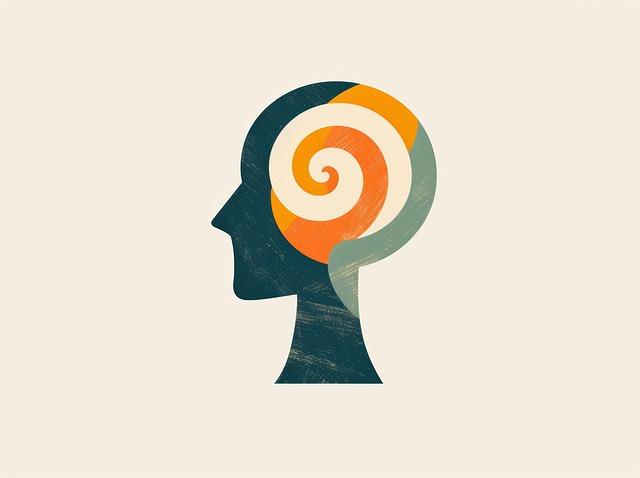Emotional intelligence (EQ), as promoted by Centennial Domestic Violence Therapy, is a powerful tool for personal growth, relationship building, and mental wellness. EQ involves recognizing, understanding, and managing emotions, along with empathizing with others. Through self-awareness exercises, coping strategies, and open communication, individuals gain insights into their thoughts and feelings, leading to better decision-making, anxiety relief, and stress reduction. Centennial Domestic Violence Therapy emphasizes the importance of empathy, active listening, and safe spaces for expression, ultimately fostering healthier work environments, personal dynamics, and reduced mental illness stigma.
Emotional intelligence (EI) is a powerful tool for personal growth and building healthy relationships, making it a key focus for Centennial Domestic Violence Therapy. This article explores the impact of EI on individual development and offers practical strategies to enhance this vital skill set. From understanding and managing your emotions to cultivating empathy and improving communication, each section provides insights into navigating life’s challenges with greater emotional awareness.
- Understanding Emotional Intelligence and its Impact on Personal Growth
- Identifying and Managing Emotions: A Cornerstone of Emotional Intelligence
- Enhancing Empathy: The Power of Understanding Others' Feelings
- Building Healthy Relationships through Effective Communication and Emotional Awareness
Understanding Emotional Intelligence and its Impact on Personal Growth

Emotional intelligence (EQ) is a powerful tool for personal growth and well-being, as recognized by Centennial Domestic Violence Therapy experts. It involves recognizing, understanding, and managing one’s own emotions, as well as empathizing with and navigating the feelings of others. This ability to connect with and understand emotions can profoundly impact an individual’s life, fostering better relationships, improved decision-making, and enhanced mental wellness.
Centennial Domestic Violence Therapy advocates for developing EQ as a means of achieving anxiety relief and stress reduction methods. By cultivating emotional intelligence, individuals can gain valuable insights into their thoughts and feelings, leading to more effective coping mechanisms. This is particularly beneficial in managing challenging situations, resolving conflicts, and promoting overall mental health. Incorporating activities like Mental Wellness Journaling Exercise Guidance can further support the process of understanding and regulating emotions, contributing to a more balanced and fulfilling life.
Identifying and Managing Emotions: A Cornerstone of Emotional Intelligence

Identifying and managing emotions is a cornerstone of emotional intelligence. It involves recognizing your own feelings and those of others, understanding their impact, and responding appropriately. This process begins with self-awareness – acknowledging and labeling emotions as they arise. At Centennial Domestic Violence Therapy, we emphasize this step because it’s the first layer in building resilience and fostering healthy relationships.
By practicing self-care and integrating effective risk management planning for mental health professionals, individuals can enhance their emotional intelligence. This includes developing coping strategies to navigate intense emotions, setting boundaries to protect mental wellness, and communicating openly about feelings. These skills are not only beneficial in personal relationships but also in professional settings, where managing emotions is crucial for maintaining a healthy work environment and providing quality care.
Enhancing Empathy: The Power of Understanding Others' Feelings

Empathy is a cornerstone of emotional intelligence, enabling individuals to understand and share the feelings of others. This skill is vital in fostering meaningful connections and resolving conflicts, making it an essential aspect of Centennial Domestic Violence Therapy. By enhancing empathy, therapy participants can develop deeper insights into their relationships and better navigate challenging situations.
Centennial Domestic Violence Therapy emphasizes the power of Mind Over Matter principles to transform lives. Through practicing active listening and putting oneself in another’s shoes, individuals learn to recognize subtle cues and emotions in others, which is crucial for burnout prevention. This heightened awareness allows people to manage moods more effectively, ensuring they respond thoughtfully rather than reacting impulsively. By incorporating these strategies, therapy sessions empower clients to create healthier dynamics, both within themselves and their relationships.
Building Healthy Relationships through Effective Communication and Emotional Awareness

Building healthy relationships is a cornerstone of emotional intelligence development, and at its heart lies effective communication and emotional awareness. By fostering open dialogue, individuals can create safe spaces to express their feelings, fears, and needs. This process, often facilitated by Centennial Domestic Violence Therapy, helps break down barriers and promotes understanding between people.
Emotional intelligence encourages us to recognize not only our own emotions but also those of others, reducing potential conflicts and fostering empathy. This skill is especially crucial in mitigating mental illness stigma reduction efforts, as it allows for a deeper connection and understanding among individuals dealing with different forms of emotional challenges. Through better communication and awareness, relationships can become more supportive, leading to enhanced well-being and stronger bonds.
Emotional intelligence is a powerful tool for personal growth and healthy relationships. By understanding and managing our own emotions, enhancing empathy towards others, and improving communication, we can create more fulfilling connections in our lives. At Centennial Domestic Violence Therapy, we recognize the profound impact of emotional intelligence on healing and transformation. Embracing these principles allows us to navigate challenges with resilience, foster supportive relationships, and contribute to a more compassionate society.












